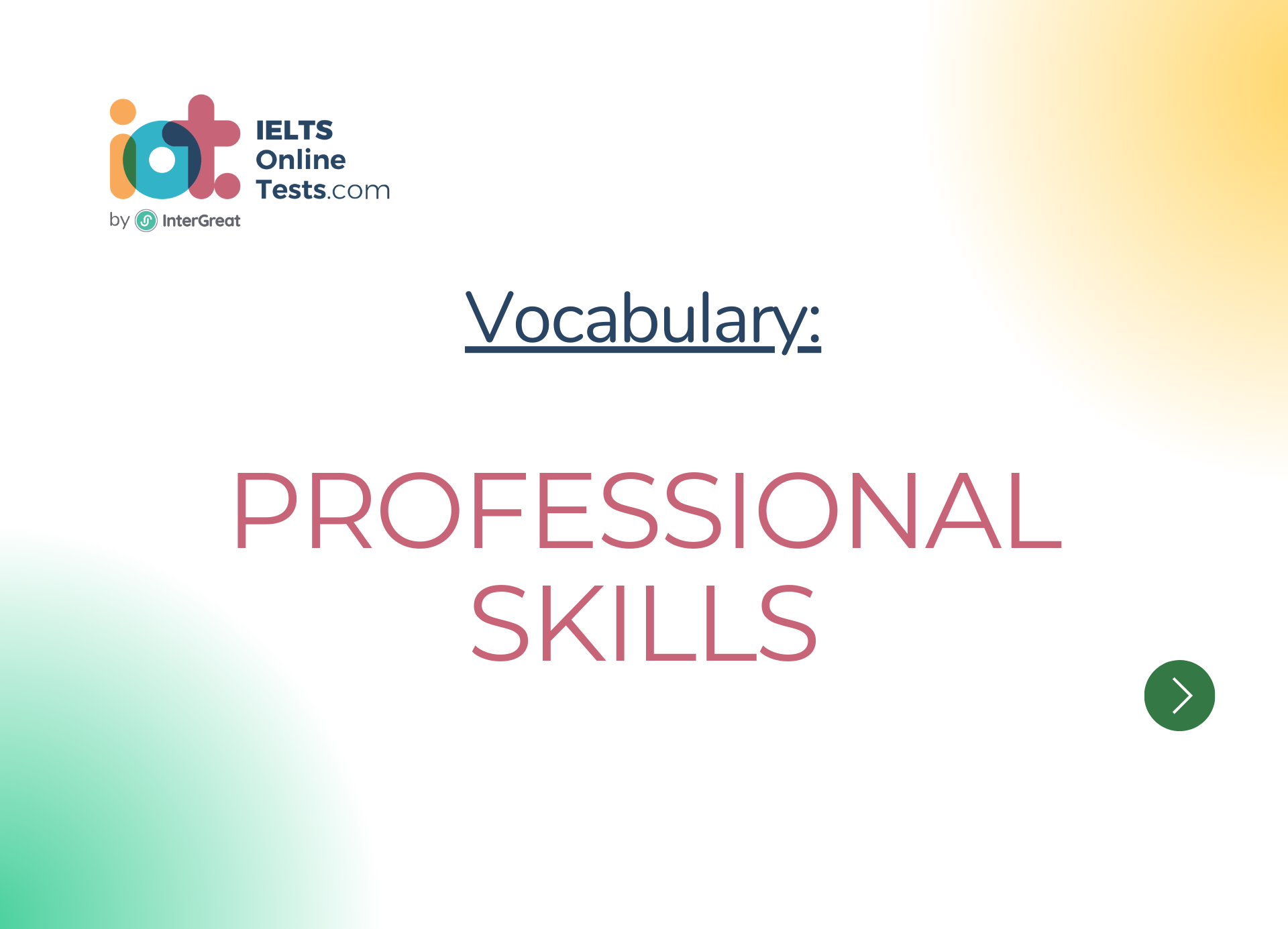
Professional skills
Here are some vocabulary words related to professional skills:
Communication Skills:
The ability to convey information clearly and effectively, both verbally and in writing.
Leadership Skills:
The capability to guide and influence others toward a common goal or objective.
Teamwork Skills:
The aptitude to collaborate and work effectively with others as part of a team.
Problem-Solving Skills:
The ability to identify and find solutions to complex or challenging issues.
Time Management Skills:
The proficiency in organizing and prioritizing tasks to maximize productivity.
Adaptability:
The capacity to adjust and respond positively to changing circumstances or situations.
Creativity:
The skill to think innovatively and generate new ideas or approaches.
Analytical Skills:
The ability to analyze and interpret data or information to make informed decisions.
Critical Thinking:
The capability to objectively evaluate and assess information to form logical conclusions.
Decision-Making Skills:
The proficiency in making well-considered choices based on available information.
Negotiation Skills:
The aptitude to reach mutually beneficial agreements through effective communication.
Problem-solving Skills:
The capability to analyze issues and find effective solutions.
Computer Literacy:
The knowledge and ability to use computers and software efficiently.
Time Management:
The skill of managing time effectively to complete tasks and meet deadlines.
Multitasking:
The ability to handle multiple tasks or responsibilities simultaneously.
Conflict Resolution:
The skill of resolving disagreements or conflicts in a constructive manner.
Emotional Intelligence:
The ability to recognize, understand, and manage one's own emotions and the emotions of others.
Presentation Skills:
The capability to deliver information or ideas in a clear and engaging manner to an audience.
Organizational Skills:
The proficiency in efficiently organizing and arranging tasks and resources.
Attention to Detail:
The ability to notice and focus on small, critical elements in tasks or projects.
Customer Service Skills:
The capability to interact with customers in a friendly and helpful manner.
Project Management Skills:
The ability to plan, execute, and monitor projects to achieve specific goals.
Public Speaking:
The skill of confidently speaking in front of a group of people.
Research Skills:
The ability to gather and analyze information from various sources.
Networking Skills:
The aptitude to build and maintain professional relationships with others in the industry.
Interpersonal Skills:
The capability to interact effectively and harmoniously with others.
Language Proficiency:
The level of fluency and competence in different languages.
Numeracy Skills:
The ability to work with numbers and perform mathematical calculations.
Writing Skills:
The capability to express ideas clearly and coherently in written form.
Problem Identification:
The skill of recognizing and defining issues or challenges that need to be addressed.
Conflict Management:
The ability to handle and resolve conflicts or disagreements within a team or organization.
Intercultural Competence:
The capability to effectively communicate and work with individuals from diverse cultural backgrounds.
Resilience:
The capacity to bounce back from setbacks or challenges and maintain a positive attitude.
Delegation Skills:
The proficiency in assigning tasks and responsibilities to team members based on their strengths and expertise.
Financial Literacy:
The knowledge and understanding of financial concepts and principles.
Innovation:
The ability to introduce new ideas, products, or processes that improve efficiency or effectiveness.
Digital Literacy:
The skill to use digital technologies and navigate the online world effectively.
Self-Motivation:
The ability to stay driven and focused without external supervision.
Professional Development:
The process of continuously improving skills and knowledge related to one's profession.
Empathy:
The capacity to understand and share the feelings and perspectives of others.
Remember to practice using these vocabulary words in relevant contexts and scenarios to improve your language skills. Good luck with your IELTS preparation and professional development!




